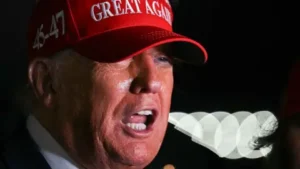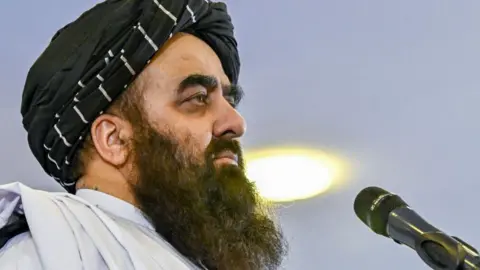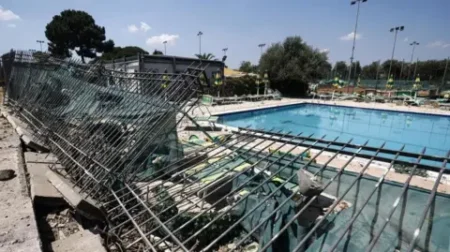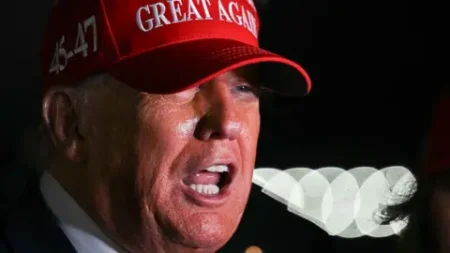In a significant geopolitical development, Russia has emerged as the first nation to officially recognize the Taliban government in Afghanistan. This landmark decision was deemed “courageous” by Afghanistan’s Foreign Minister, Amir Khan Muttaqi, during a meeting with Russia’s ambassador to Afghanistan, Dmitry Zhirnov, in Kabul on a recent Thursday. At this meeting, Zhirnov articulated his government’s formal recognition of the Islamic Emirate of Afghanistan, signaling a shift in international diplomacy surrounding the Taliban regime.
Muttaqi expressed his optimism following this announcement, interpreting it as a “new phase of positive relations, mutual respect, and constructive engagement” that could provide a template for other countries regarding their approach to Afghanistan. The Taliban, since reclaiming power in August 2021, has actively sought international recognition and investment, even amidst rising reports of human rights violations in the country.
Russia’s foreign ministry backed the recognition by stating it would foster productive bilateral cooperation between Russia and Afghanistan. The ministry highlighted potential developments in sectors such as energy, transportation, agriculture, and infrastructure. Furthermore, it affirmed Russia’s commitment to helping Afghanistan tackle the dual challenges of terrorism and drug trafficking, which have plagued the region for decades. This move illustrates Russia’s strategic interest in re-engaging with Afghanistan and taking a leading role in the region.
Historically, Russia has maintained a unique relationship with Afghanistan. Unlike many western nations, which shuttered their embassies following the Taliban’s takeover, Russia kept its diplomatic mission operational, asserting the importance of maintaining dialogue with Kabul. In 2022, Russia was also the first to ink an international economic agreement with the Taliban, including commitments to supply oil, gas, and wheat to the country. The Kremlin’s ongoing efforts appear designed to counterbalance Western influence and establish Russia as a primary player in Afghanistan’s future.
The Taliban’s delisting from Russia’s list of terrorist organizations early in the year was a notable step in this recalibration of relations, aiming to facilitate a “full-fledged partnership” with the Afghan regime. This aligns with Russian President Vladimir Putin’s previous characterization of the Taliban as an ally in combating terrorism during discussions held as early as 2018.
Russia’s engagement with Afghanistan comes against the backdrop of its complex historical entanglements with the country, which include the Soviet Union’s costly invasion in 1979, a conflict that lasted for nearly a decade and ended with the Soviets withdrawing in 1989, ultimately leaving Afghanistan in disarray. This historical relationship complicates current interactions but also indicates Russia’s readiness to re-enter Afghanistan as a strategic partner rather than a military adversary.
Despite these developments, the international community remains largely skeptical of the Taliban government’s legitimacy and governance capabilities. Western nations and humanitarian organizations have been vocal in their criticism, particularly regarding the Taliban’s stringent implementation of Sharia law, which has imposed severe restrictions on women and girls. This has included barring women from higher education and requiring male guardianship for women to leave their homes, labeled as “gender apartheid” by various international bodies, including the United Nations.
Furthermore, Afghanistan is still experiencing the ramifications of strict sanctions imposed by the United Nations Security Council in 2021, notably the freezing of roughly $9 billion in Afghan state assets. While some countries, including China, the United Arab Emirates, Uzbekistan, and Pakistan, have designated ambassadors to Kabul, Russia stands out as the only nation to have formalized the recognition of the Taliban government since their return to power nearly four years ago, signaling a potential shift in the global diplomatic landscape regarding Afghanistan.
As this situation unfolds, it remains critical to monitor the implications of Russia’s recognition of the Taliban and how it may influence both regional dynamics and the broader international response to the continued governance by the Taliban in Afghanistan. The world watches with bated breath as the complex tapestry of Afghan politics continues to evolve under the shadow of historical influences and emerging alliances.











